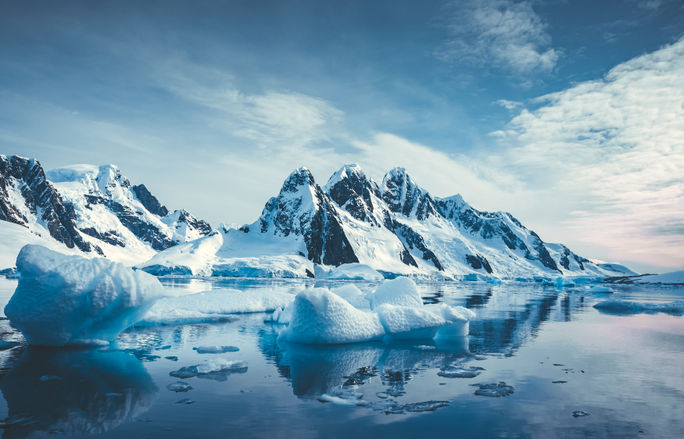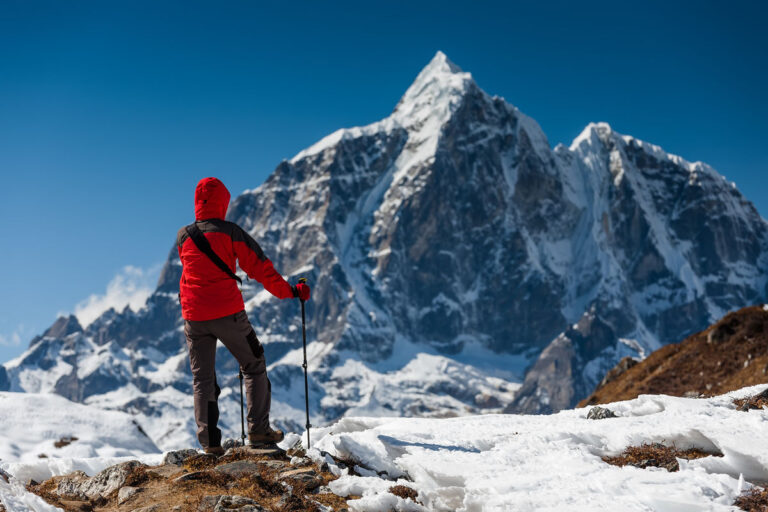 Mia Taylor
Mia Taylor
Last updated: Sunday, July 7, 2024 at 8:00 AM EST
Adventure tourism once represented an elite group of courageous travellers willing to take on any extreme condition in search of an extraordinary journey.
Climbing Everest? No problem.
Would you book a space trip with Virgin Galactic? Of course you would.
But in recent times, the number of adventure travelers has increased as more and more everyday travelers seek to explore uncharted territory, according to travel insurance platform InsureMyTrip.
According to the experts at InsureMyTrip, after getting their fill of theme park holidays and sunny beach getaways, the average traveller is looking to chase an unforgettable thrill of their own.
“Frontier tourism,” as it’s sometimes called, is rapidly gaining popularity among everyday vacationers, but the new trend is not without risks for both the planet and the travelers.
“The itineraries include storm chasing, climbing Mount Everest and visiting undiscovered parts of the Earth and beyond. But because of the extreme conditions, these destinations often pose deadly risks,” says Sarah Weber, an expert at InsureMyTrip.
Space and Beyond
While it may seem far-fetched, space travel is one experience that’s gaining wider interest now: Space tourism is expected to become a $3 billion industry by 2030, according to The New York Times.
The magazine reported that as more travelers choose to leave Earth, or pretend to, demand is on the rise for everything from pressureless balloon rides to astronaut boot camps. Those with deep pockets could also consider booking a 90-minute spaceflight with Virgin Galactic for just $450,000.
While a spaceflight with Sir Richard Branson’s company would certainly be an unforgettable experience, there are some less-than-ideal health implications to consider.
“This extraordinary experience involves the extreme effects of radiation and altered gravity on the body,” Weber said. “The altered gravity puts incredible pressure on the body, increasing the risk of heart attack.”
Space travelers would also be exposed to cosmic rays, which could damage cells and DNA, increasing the risk of cataracts and cancer, Weber added.
Another aspect of frontier tourism is when travelers explore environments on Earth that are largely untouched by modernization.
But increased travel to these parts of the world also leads to increased pollution and upsets the delicate balance of local ecosystems, Weber said.
For example, climbing Mount Everest, the ultimate hiking quest, is a vivid example of this reality. The trek to this legendary peak has gained a lot of interest in recent years.
As a result, 2023 is the deadliest season on record for summit-seekers. ExpedReview reported that about 600 people reached Everest’s summit last year, including 350 Sherpas and 250 climbers. However, last year’s figures also included the deaths of 13 climbers and Sherpas. Additionally, four people remain missing and are presumed dead.
This is not the only concern with the growing trend of Everest-related outback tourism.
About 75 tonnes of rubbish is strewn about the mountain’s challenging and crowded base camp each season, with another 50 tonnes left behind by travelers who continue beyond base camp to the summit.
“The situation is so serious that climbers are being asked to clean up their waste to help protect the environment,” Weber added.

Antarctic winter landscape (Photo: AdobeStock)
Frontier tourism causes increased carbon emissions
Frontier tourism also has negative effects on vulnerable destinations such as Antarctica and parts of the Arctic, which have seen increased interest and traffic in recent years.
The draw of these incredible places is, of course, the opportunity to view breathtaking glaciers and diverse wildlife, especially as a rapidly warming planet destroys these glaciers and makes survival of the region’s wildlife increasingly difficult.
But it’s a vicious cycle: the large numbers of people flocking to see these spectacular sights before they’re gone are doing more harm than good, contributing to further global warming and harming the region’s wildlife.
A study by the International Union for Conservation of Nature (IUCN) published in June 2023 noted:
Between 1992 and 2020, the number of tourists visiting Antarctica has increased tenfold, and numbers continue to grow. As a result, the negative environmental impacts of tourism are likely to increase. Existing regulations in the region do not adequately protect the Antarctic environment from tourism impacts (damage to visitor settlements and along travel routes, disturbance to wildlife, etc.). The report further highlights that increasing tourism is changing the reproductive and social behavior of penguin species.
“Antarctic tourism has both positive and negative impacts,” the IUCN report states. “Antarctic tourism experiences can both inspire and educate, and potentially boost public support for and investment in the conservation of the continent.”
“However, as Antarctica’s tourism industry grows and diversifies, the severity of adverse environmental impacts is likely to increase,” the report adds. “If left unchecked, these impacts will be exacerbated by the effects of climate change.”
The future of frontier tourism
So is it likely that frontier tourism will continue to grow unchecked, as the IUCN report fears?
Weber seems to think the trend is unlikely to subside anytime soon, suggesting it’s more than a passing fad.
“This trend will only grow as more travelers seek to push their limits and explore the world’s last frontier,” she says. “The call of the wild continues to fascinate the hearts of intrepid explorers. For those ready to answer the call, it offers immeasurable rewards: unparalleled beauty, profound personal growth, and stories that will last a lifetime.”
Weber added that this type of tourism also requires “higher responsibility from tourists and tour operators”, including:
Prepare thoroughly: Proper diet, training and medical check-ups are essential to ensure your body is properly prepared for extreme environments. Respect the environment: Research environmental protection techniques thoroughly to reduce your impact during your trip. Be aware of the risks involved: Traveling into unknown territories comes with many risks. Make sure you have adequate travel insurance that can provide medical assistance in case of an emergency. Travel with experts: Make sure the adventure guide or consultant you travel with prioritizes nature and biodiversity and minimizes negative impacts. It is also important to travel with guides who prioritize safety and do not take unnecessary risks.
Weber concludes that frontier tourism “is a testament to the enduring human spirit of adventure and discovery,” adding that those embarking on frontier tourism “must be prepared and put the environment first.”
Subscribe to the daily TravelPulse newsletter for the latest travel news, updates and deals.
Topics explored in this article
Featured and Advice Travel Intel
Source link

